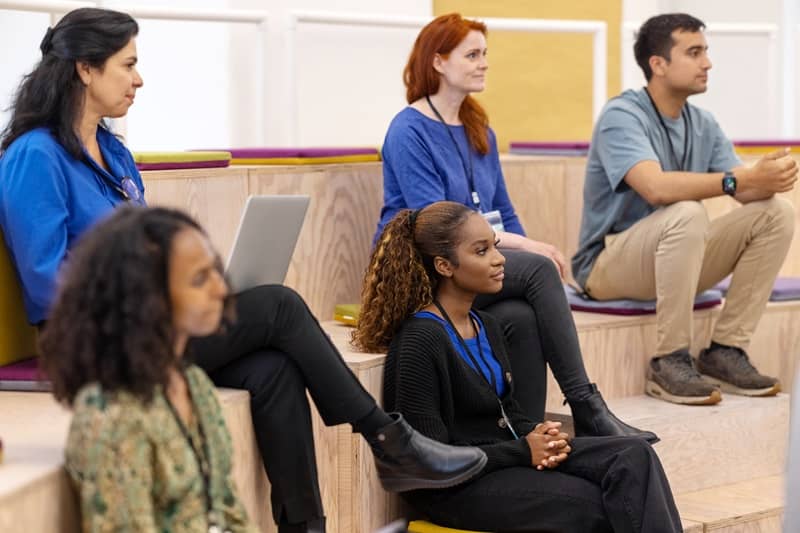By Eric Fruits, Ph.D.
With the clock ticking down to midnight on December 31, my family was looking forward to putting 2020 behind us. The New Year held at least a small hope that the pandemic would subside, vaccines would be distributed, schools would re-open, and the chaos and violence would taper off. While the year didn’t kick off the way I’d hoped, I can still dream in what I call my Year of Wishful Thinking.
Operation Warp Speed demonstrated what awesome innovations can be achieved with massive investment and reduced regulatory hurdles. In less than a year, we went from pandemic panic to numerous effective vaccines.
Now, if we can only get those vaccines into people’s arms. With hindsight, it was probably a mistake to put trust in the states to manage the vaccination process. In Oregon, Operation Warp Speed has given way to Operation Equity Lens. The first meeting of Oregon Vaccine Advisory Committee spent a third of its time on “an hour of introductions, sharing of pronouns, expressing words of the day and a Native American prayer” according to the Lund Report. As a result the meeting ran out of time and did not cover key agenda items.
My wish is that the Vaccine Advisory Committee gets moving on putting shots in arms. There is growing evidence that a focus on age is the best strategy for allocating the vaccine. It’s simple, straightforward, and targets the population most likely to die from COVID-19. The next committee meeting should be 15 minutes. “We distribute by age, everyone who agrees, say ‘aye.’” Everyone says, “Aye.” Done. Meeting adjourned, shots go out, the state is vaccinated.
With vaccinations rolling out, we need to focus on reopening the state. People need to go back to work. Businesses need customers. Kids need to be in school, both to learn and to see their friends again. Once a large share of the population is vaccinated, there’s no more reason or excuse for emergency orders shutting down huge parts of the state.
With the re-opening, there will be a reckoning. Residents and businesses will demand that peace, safety, and livability return to their downtowns and neighborhoods. Property owners and utilities will demand back payments. Parents will demand accountability from their schools. State and local governments will demand more and higher taxes. My wish is that the joy of reopening does not devolve into rent seeking and score settling.
The pandemic has provided an opportunity to experiment with deregulation. What we learned is that many regulations do more to stifle opportunities than to protect the public. For example, during the pandemic, the state allows physicians and physician assistants with out-of-state licenses to practice in Oregon so long as they are in good standing in their home state. It seems to be working, let’s make that permanent—and expand it to every occupation. During the pandemic, the state allows restaurant to-go orders to include cocktails. Restaurants have been pushing for to-go cocktails for years. It took an emergency to make it so. Let’s make it permanent.
In my Year of Wishful thinking, I hope state and local governments review their regulations from top-to-bottom to eliminate regulations that do more harm than good.
- As noted above, many occupational licensing laws do little to protect the public. Instead they serve merely to keep people out of the occupation and extract higher prices from consumers.
- Oregon’s certificate of need laws have led to an undersupply of much needed hospital beds in the state. If we had more ICU beds, we would not have needed to shut down as fast and as hard as we did.
- The state’s prevailing wage law was originally designed to exclude non-union and black-owned firms from winning government contracts. “Affordable” public housing costs almost double what privately built housing does and prevailing wages are a big reason why. Without prevailing wage laws, we could be building much more affordable housing.
- In much of Oregon, a student’s public school is assigned by street address and public money flows to the school system rather than the student. We need to flip that system. Send the money to the student and let their family choose which school meets their needs.
- Get government out of the business of being in business. There is no reason for Metro, the Portland area regional government, to be running the Zoo, Convention Center, Expo Center, and solid waste management. There is no reason for the City of Portland to also be the water company. We hate monopolies in the private sector and we shouldn’t tolerate them in the public sector.
The chaos of the first weeks of 2021 makes it difficult to be hopeful. But 95% of the year is still ahead of us. It’s not too late for some dreams to come true in the Year of Wishful Thinking.
Eric Fruits is Vice President of Research at Cascade Policy Institute, Oregon’s free market public policy research organization.












